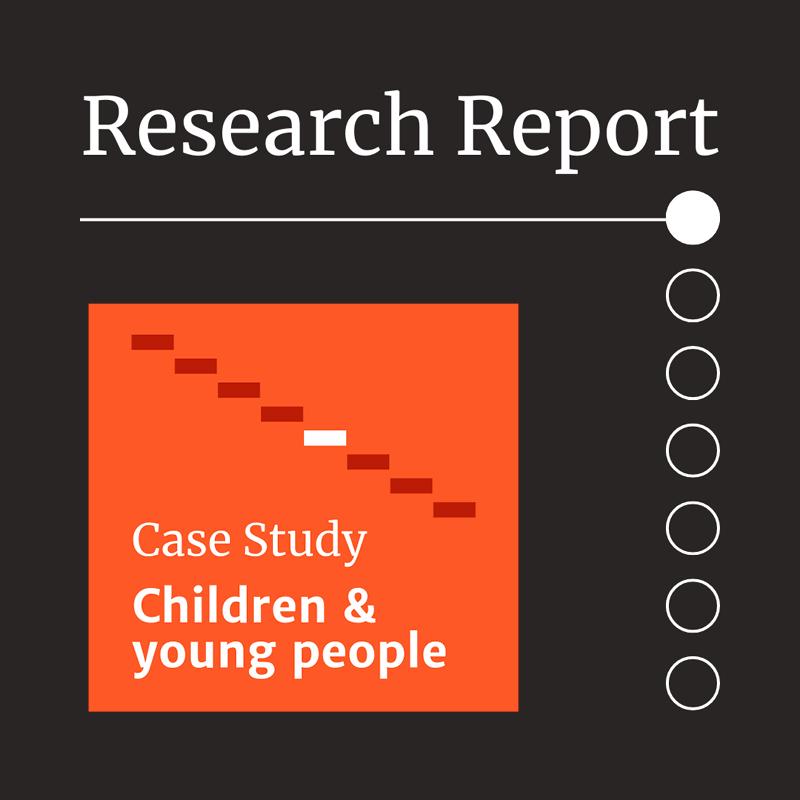Profiling Children for Advertising: Facebook’s Monetisation of Young People’s Personal Data

This report explores how social media platforms profile young people for advertising purposes, and highlights how out of step with community expectations this practice is.
Previous research has shown that 65% of parents are uncomfortable with businesses targeting ads to children based on information they have obtained by tracking a child online1 (‘profiling for advertising purposes’). This research asked 400 young Facebook users what they thought of profiling for advertising, and found similar levels of discomfort. 65.2% of respondents expressed disapproval or concerns about being profiled.
Using Facebook as a case study, this report outlines how Facebook develops and markets profiles about young people. It shows that while Facebook often uses very personal data to create profiles, they are not particularly careful about what they allow advertisers to promote to them.
This practice is a misuse of young people’s data, and not what young people want to happen.
Profiling for commercial advertising purposes should be curbed by stronger data protection regulations for under 18-year-olds. Reset Tech Australia is calling for the introduction of a data code for children and young people under 18-years-old, so that their data is only captured and processed in ways that are in their best interests. This would restrict profiling for purely commercial advertising. A similar data code has already been passed in the UK, and is on its way in Ireland.
We think young Australians deserve the same, if not better, protections.
- Facebook uses personal data collected about young people aged 13-18 to profile them across a range of categories. Many of these profiles are created using highly sensitive data, that potentially leaves young people vulnerable to advertisers. For example, Facebook uses data it collects about underage users to create profiles of young people with harmful or risky interests such as 13-17 year olds interested in smoking, gambling, alcohol or extreme weight loss. This sort or profiling is part of Facebook’s day-to-day business model. Reaching a thousand young people profiled as interested in alcohol will cost advertisers around $3.03, $38.46 for those interested in extreme weight loss, or $127.88 to those profiled as interested in smoking.
- Facebook is not especially careful about what they will allow profiles to be used for. We developed a ‘dubious ads’ campaign and were able to get approval for ads that:
- Reinforced body image ideals, set to be delivered to those profiled as 13-17 years old and interested in extreme weight loss
- Encouraged people to ‘win prizes’ in mobile-game-style gambling, set to be delivered to those profiled as 13-17 years old and interested in gambling.
- Encouraged young girls to connect and chat with wealthy men, set to be delivered to those profiled as female, 13-17 years old, single and interested in online dating services.
To be very clear, we did not run these ‘dubious ads’. We only sought approval from Facebook to run them, to clarify if Facebook might offer young people stronger protections. This report is not about these ads, nor advertising standards.
- Young people are concerned about the volume of data collected about them and what Facebook ‘knows’ about them. We ran a survey of 400 16 and 17-year-olds who use Facebook or Instagram. 77.8% of respondents said they were concerned about the volume of data that is collected about them online.
- Young people are extremely concerned about the profiles Facebook is creating about them. Young respondents were more concerned about Facebook using data to profile young people for advertising purposes, than they were about data collection. Respondents were specifically concerned about Facebook creating profiles based on interests in:
- Cigarettes: 78.9% of respondents were concerned about young people being profiled this way.
- 80.6%: Extreme weight loss.
- 82.7%: Gambling.
- 70.4%: Adult magazines.
- Young people largely disapprove of being profiled for commercial advertising purposes. We asked our survey respondents to tell us how they felt about profiling. Almost two thirds of respondents expressed disapproval of profiling for commercial advertising purposes, sharing negative emotional responses, calling it as wrong or invasive, or wanting better regulation to curb the practice. Almost a third expressed ‘middle ground’ reactions, where profiling was just part of a deal they could not refuse or it didn’t particularly worry them. Only 2.2% of young people said they found profiling for commercial advertising helpful as it enabled them to connect with products they liked.